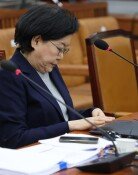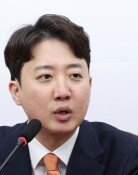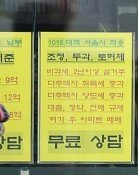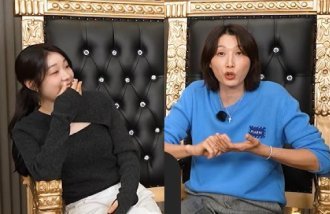Party nominations must not be hogged by mainstream
Party nominations must not be hogged by mainstream
Posted March. 08, 2024 07:40,
Updated March. 08, 2024 07:40
As the party nominations for April general elections are entering into their final stage, the mainstreamers with the actual influence within their parties are prevailing in the nomination results for both ruling and opposition parties. In the Democratic Party, which announced the results of 20 primaries last night, the trend favoring candidates affiliated with party leader Lee Jae-myung and excluding those not affiliated with him proved much more pronounced. Notable figures such as Noh Young-min, former chief of staff to the president, Yoon Young-chan, former senior secretary for public communication, and incumbent lawmakers close to Lee Nak-yeon, such as Park Kwang-on and Kim Han-jeong, were failed to win nominations. The ruling party is now facing criticism for its nominating process, characterized as too predictable due to the low disqualification rate of pro-Yoon lawmakers, which hovers under the 20% range.
The massive defeat of the non-Lee faction within the Democratic Party had been somewhat anticipated since the release of evaluations for members in the bottom 10% and 20%. However, the unilateral defeat of non-Lee affiliated candidates in the 20 primaries announced the night before was shocking. The disqualified lawmakers were mostly from the faction that had been attacked as ‘watermelons (betrayers)’ for voting for Lee Jae-myung’s arrest consent bill. Lee Jae-myung evaluated the situation by saying, "The Democratic Party belongs to the party members, and the people are the owners of the party." He insisted that he was not directly involved in the defeat of the opposing faction and that it merely reflected the party members' will. However, the conflict is escalating further, which had been fueled when the chair of the election management committee resigned, citing "false reporting" with the involvement of unapproved polling agencies in the primaries.
While relatively less noisy, the main ruling People Power Party is also not much different in terms of the overwhelming influence of the mainstream lawmakers in the nominations. Out of 96 incumbent lawmakers who expressed their intention to run, 66 received nominations. Even if only half of the 12 lawmakers currently participating in the primaries survive, the nomination rate for the incumbents will reach 75%. The demand for a reshuffle of pro-Yoon and Yeongnam faction members, led by former interim chairman In Yo-han, seems to be a thing of the distant past. Around 30 rookie lawmakers who blocked former lawmaker Na Kyung-won's bid for party leadership a year ago have mostly received nominations. The fact that lawmaker Park Seong-min, who was a leader at the time, is facing a three-way competition remains one of the few news noteworthy. Additionally, two close aides of former President Park Geun-hye received nominations, while there are struggles within the camp of former lawmaker Yoo Seung-min, indicating a trend reflecting the president's intentions.
Be it the opposition or the ruling party, there are always influential factions leading nominations. However, deviating from common sense has historically resulted in facing heavy headwinds, as seen in the "royal seal scandal" during the 2016 Saenuri Party nominations. When nominations are designed to cater to the tastes of the powerful mainstream, it naturally hampers the embracing of new talents. If nominations continue to be dominated by the will of those in power, one cannot help but wonder if the politics will improve in the next four years. Those who led the nominations for both parties must answer this question.






![[단독]‘李 성남-경기라인’ 김용, 보석중 북콘서트 논란](https://dimg.donga.com/c/138/175/90/1/wps/NEWS/IMAGE/2026/01/26/133226050.6.jpg)
